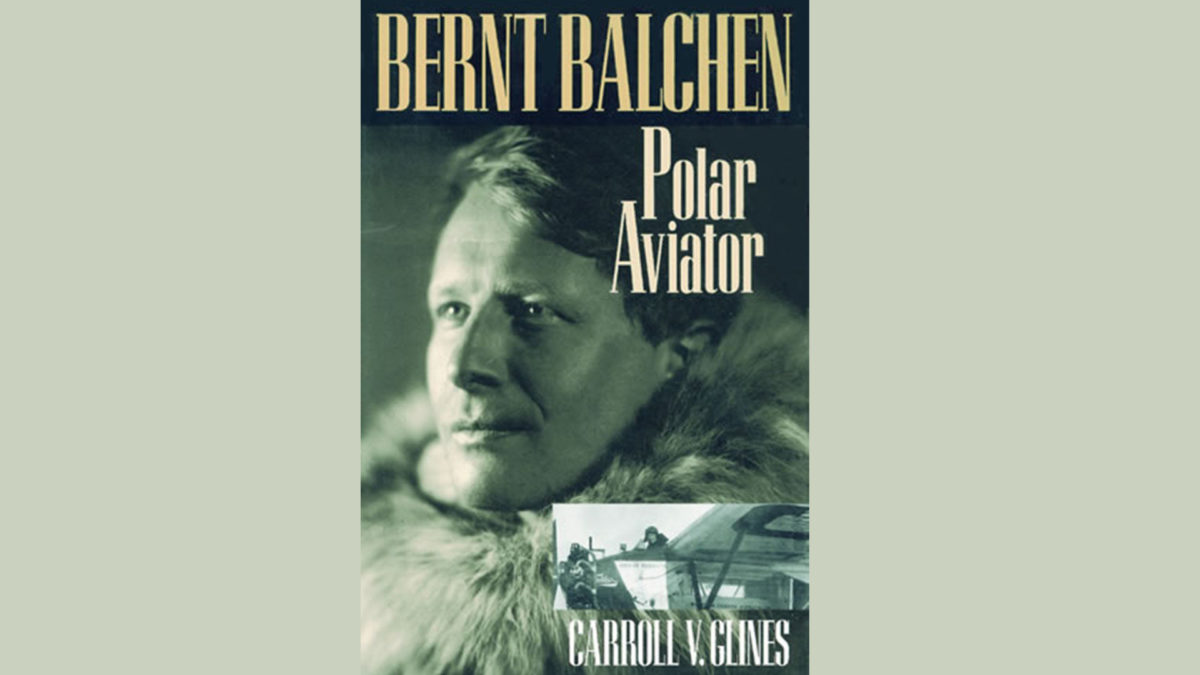Bernt Balchen, Polar Aviator by C.V. Glines, Smithsonian Institution Press, 1999
Bernt Balchen is without question one of the most underappreciated heroes of our times. A man of immense personal courage, and gifted with the highest level of skills both in flying and in leadership, Balchen was for more than 30 years one of the most important people in civil and military aviation.
Yet Balchen was cheated of the fame he did not seek by two agencies. The first was an ungrateful individual, famous in his own right, Admiral Richard E. Byrd. (Later, members of the Byrd family would continue the vendetta.) The second was an ungrateful and unfeeling American government, which after Balchen’s heroic efforts with the 1929 Byrd expedition insisted on his deportation.
In Bernt Balchen, Polar Aviator (Smithsonian Institution Press, Washington, D.C., 1999, $29.95), Carroll V. Glines has outdone even his classic biographies of Jimmy Doolittle and Roscoe Turner. Glines has had the guts and the integrity to tell the Balchen story as it should be told, letting the chips fall where they may. For the first time anywhere, Glines lays out the facts about the controversy that has surrounded Admiral Byrd’s flight over the North Pole, as well as Byrd’s long series of vicious attacks on Balchen. Byrd bitterly resented–and feared–Balchen’s knowledge that the flight had not been over the North Pole, as Byrd had claimed, and did everything in his power to hamper Balchen’s career.
Despite Byrd’s malevolent interference, Balchen remains a marvelous subject, and Glines has done a masterful job of relating his adventuresome life. Using the expert research techniques that have defined his work for years, Glines lays out a spellbinding page turner that surely will have to be made into a motion picture. Balchen’s life has everything–adventure, romance, clandestine wartime operations, remarkable personal heroism and, withal, a truly modest central character who never complained about his shabby treatment.
Balchen was a handsome man, fluent in several languages and possessed of an enormous amount of scientific knowledge. He was also a natural soldier and a gifted athlete. Early on, he joined the French Foreign Legion, and he later fought with the Finns against the Russians in 1918. He was seriously wounded during that conflict. But he would fight again, on an epic scale, during World War II.
Balchen recovered swiftly from his bayonet wounds and trained hard to represent Norway in the 1920 Olympics as a boxer. He also applied for flight training with the Norwegian navy. Ironically, his selection to be an Olympic representative and a flight student came at the same time, and he had to choose between the two opportunities. Fortunately for aviation, he chose to become a flier.
He was a talented pilot, and his skills were valued by the Norwegian government. He was selected to prepare a rescue mission for the missing explorer Roald Amundsen, an assignment that would make Amundsen a lifelong friend and pave the way for Balchen’s ill-fated association with Admiral Byrd in his flights over the North and South poles.
Curiously, the polar flights were both the most famous and least important of Balchen’s accomplishments. He became a friend and adviser to the most important people in aviation and in government, helping Amelia Earhart on her solo flights and advising President Franklin D. Roosevelt on both civil and military aviation matters.
But it is in his portrayal of Balchen’s fascinating wartime career that Glines really shines, following the Norwegian aviator’s myriad activities with the skill and understanding of a fellow pilot. Given a direct commission as a captain in the U.S. Army Air Corps, Balchen was appointed as commander of Task Force 8. He was instructed by General Henry H. “Hap” Arnold to establish what became known as Bluie West 8, the northernmost American military base. In that important position, Balchen’s organizational genius was matched by his military courage, as he not only established a viable base but also directed bombing operations against the Germans. Later, from Scotland, he conducted a series of operations that dropped saboteurs and parachuted arms to resistance fighters in Norway.
Balchen went on to a distinguished career in the Cold War, but he was rewarded by having his promotion to brigadier general blocked by Senator Harry Flood Byrd, Admiral Byrd’s brother. When he retired, Balchen became a highly paid consultant on polar matters, and made one of the first public warnings of what is now called global warming.
Since his death in 1973, Balchen has been recognized by many prominent organizations and given many honors. None, however, do him the justice that C.V. Glines’ fine biography does. It contains the portrayal of a man greatly to be admired and imitated, along with a conclusive argument that proves just how badly he was treated during his lifetime by those for whom he had done the most.





